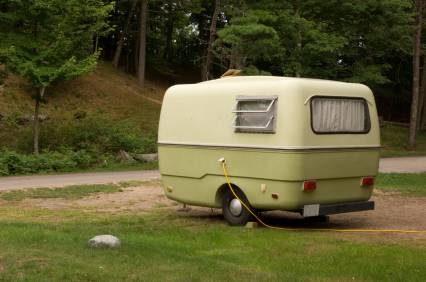In sports, you’re only as strong as your weakest player. Similarly, when it comes to ecotourism, a destination is only as sustainable as its least eco-friendly attraction. The attractions, accommodation, services, and infrastructure are all integral components to the overall sustainability of a destination, therefore the eco-success of a destination depends on the sustainability of its parts. For those conscious travelers seeking an holistic experience of sustainability, there are a few key elements to be considered when evaluating the overall sustainability and ecotourism potential of a destination.
According to the definition and principles of ecotourism established by The International Ecotourism Society (TIES) in 1990, ecotourism definition is “Responsible travel to natural areas that conserves the environment and improves the well-being of local people.”
As such, when considering how to conduct sustainable development and participate in ecotourism, it is crucial to consider all aspects of this definition: economic, social, and environmental impacts. Following this, these are some ways to consider the elements of ecotourism on your next adventure.
Environmental Protection
A destination’s care and concern for the protection of its natural environment is integral to the  destination’s sustainable and ecotourims practices success. Often considered a cornerstone of sustainability, along with socio-cultural and economic factors, the environment is so easily impacted by human activity, especially due to high levels of tourist behavior. Environmental concerns will be touched upon in most of the following sub-headings, and it is important to understand that a destination’s sustainability can be defined by its commitment to environmental protection. The environment, however, is not the only mark of a sustainable and ecotourism destination, as will be discussed further below.
destination’s sustainable and ecotourims practices success. Often considered a cornerstone of sustainability, along with socio-cultural and economic factors, the environment is so easily impacted by human activity, especially due to high levels of tourist behavior. Environmental concerns will be touched upon in most of the following sub-headings, and it is important to understand that a destination’s sustainability can be defined by its commitment to environmental protection. The environment, however, is not the only mark of a sustainable and ecotourism destination, as will be discussed further below.
Local vs. Foreign Ownership
Foreign capital investment is, often times, an integral component of development when it comes to the tourism industry, as are foreign business consultants. However, foreign ownership of properties, attractions, transportation, and services can be one of the most detrimental forces working against local communities seeking to benefit from tourism. Often times foreign ownership causes economic leakage, which is when profits ‘leak’ out of the destination and back to the country of ownership. This typically happens with resort properties and chain hotels, common destinations for tourists, so it is important for ecotourism travelers to understand the full impacts of their spending. Not only do profits from the rooms go to benefit foreign entities, it is also very common for hotel accessories, amenities, food, and other products to be imported into the destination from the source country, meaning local farmers and producers have no opportunity to provide their produce to hotels. This barrier between the locals and tourism industry is unfair and unsustainable, since it does not allow the local population to profit and benefit from a consumptive industry operating in their backyard. When the local population is involved in the process, they are able to contribute to a ecotourism industry that is positively facilitating opportunities for local development through responsible tourism.
Local Communities and Tourism Development
The cornerstone of sustainable tourism is that it is able to enrich a promising future, economically, environmentally, and socially, for the local community. Often times we focus on environmental impacts, and economic forces, and forget that the social concerns are just as important.
We’ve talked about buying local, but it goes further than that. Not only is it important to support the local economies, it is important to enrich local societies by involving the communities in the tourism industry.
It is also vital to understand the detrimental impact tourism can have on communities. There are a number of different ways tourism can actually cause human-rights violations in destinations, and in some cases, locals can be exploited for the benefit of tourists. This exploitation commonly occurs through the exploitation of women and children, as well as cultural conflicts and poor working conditions in the tourism industry.
However, in the face of enormous challenges and depravity, there are bright lights in the future of local communities and tourism. There are community-based initiatives around the world that seek to enrich the lives of locals and tourists alike by promoting local accommodation and tour ownership and positive tourist behaviours. Many communities are benefitting from these types of efforts, and provided education, awareness, and initiatives continue, more local communities will be able to successfully implement community-based tourism.
It is so critical to understand the role local communities play in tourism development, in that it must be of a sustainable nature for the community to truly benefit. Employing initiatives that are run and managed by locals, using local man-power, material, and resources is crucial, otherwise tourism has the potential to ravage, exploit, and destroy a community’s resources, people, and dignity.
Government-Initiated Responsible Tourism and Ecotourism Strategy
In recent years, many governments have developed ecotourism or sustainable tourism strategies. While many ecotourism strategies are well crafted and use a balanced approach of focusing on appropriate areas, many responsible tourism strategies contain problems that are seen throughout the world.
While oftentimes the overall intention of the strategy is well meaning, many responsible tourism strategies possess glaring faults, predominately in the form of excessively ambitious lists of priorities, political interference, economic misguidance, and lack of attention to socio-cultural enrichment. Often ecotourism strategies lack focus, and fail to address the cornerstones of sustainable tourism development – environment, socio-cultural, and economic. The fourth cornerstone, politics, when not promoting sustainability, has the nasty habit of getting in the way of it. Can’t help itself.
There are, however, some very successful responsible tourism strategies. These typically incorporate the strategy into a government-wide vision of responsible and sustainable initiatives, and these strategies are fundamental assets in achieving holistic sustainable development.
Ecotourism Practices for accommodation
 As mentioned earlier, hotels possibly have the most negative impact on the sustainability of destinations, and they really needn’t. Hotels can be guilty of any number of offenses, including foreign ownership and thus economic leakage through imports, exclusion of the local population, exploitation of the local population through poor working conditions, strain on the environment due to water consumption, disregard for building codes with structural and environmental ramifications, and segregation of tourists and locals. Bad nuts, eh? Many tourists (and this is perhaps where we see the greatest distinction between ‘travelers’ and tourists’) are completely or partially unaware of these issues, and unfortunately, quite a few don’t particularly care and choose to be blissfully ignorant.
As mentioned earlier, hotels possibly have the most negative impact on the sustainability of destinations, and they really needn’t. Hotels can be guilty of any number of offenses, including foreign ownership and thus economic leakage through imports, exclusion of the local population, exploitation of the local population through poor working conditions, strain on the environment due to water consumption, disregard for building codes with structural and environmental ramifications, and segregation of tourists and locals. Bad nuts, eh? Many tourists (and this is perhaps where we see the greatest distinction between ‘travelers’ and tourists’) are completely or partially unaware of these issues, and unfortunately, quite a few don’t particularly care and choose to be blissfully ignorant.
However, if you’re a keen traveler with an interest in sleeping ethically in an ecotourism destination, there are accommodations throughout the world that focus on low or zero emissions, and keep a close eye on their carbon footprint. There are green-focused hostels, eco-lodges, boutique hotels, and luxury ecotourism accommodations around the world that are committed to sustainable tourism and achieving zero carbon emissions. A word to the wise, though – some hotel groups that are focused on zero emissions and low carbon footprints may not have local ownership (or opportunities for locals to profit and benefit from the industry), so be wary of the terminology used. Usually your best option is a certified eco-lodge, but if there isn’t one in your destination, use your knowledge and discretion to make the best decision.
You can also impact how sustainable your accommodation experience is by following ecotourism guidelines about water-saving efforts such as re-using your towels, saving water while brushing your teeth, and showering efficiently. Also remembering to turn off your lights, TV, and air conditioning when not using the room can help reduce your impact, so even if you aren’t able to find an eco-lodge or certified green room to sleep in, you can still make personal adjustments to yield a more sustainable experience.
Ecotourism Attraction Policies and Procedures
Okay, so you’ve found your eco-lodge (or at least left your hotel room with the lights off), and you want to go exploring. How do you know that your attractions are following the right ecotourism policies and procedures when it comes to sustainability? As previously discussed, if a destination is to achieve holistic sustainability, its attractions, as well as its other tourism components, need to be green. For instance, snorkeling or scuba diving outfitters should ensure they’re operating responsibly with regards to number of tour participants, rules and regulations for participants under water, etc. Ecotourism hiking trails should ideally have guide pamphlets available and information on where and how to dispose of trash.
Some ecotourism destinations around the world have the right attitude towards greening their tourism and local attractions. They often provide visitors with comprehensive guides to sustainable attractions and ecotourism in their region, and typically point visitors towards attractions that are committed to environmental awareness, or ones that are car-free. Many of these destinations have some type of green business scheme, which usually acts as encouragement for tourism businesses to carry sustainable attitudes and ecotourism initiatives into the future. While these programs are met with mixed levels of success, this is the type of thing that contributes to the overall sustainability of a destination.
Transportation in ecotourism
 Transportation can be really difficult in-destination, especially if the necessary infrastructure doesn’t exist (it usually doesn’t). Obviously the easiest way to compensate for your ecotourism transportation to the destination would be to off-set your air travel, (less expensive than you think), or to consider carbon-neutral methods of transportation, like walking, using eco-friendly cabs, public transit, or some trains.
Transportation can be really difficult in-destination, especially if the necessary infrastructure doesn’t exist (it usually doesn’t). Obviously the easiest way to compensate for your ecotourism transportation to the destination would be to off-set your air travel, (less expensive than you think), or to consider carbon-neutral methods of transportation, like walking, using eco-friendly cabs, public transit, or some trains.
Once you’re in the destination, the challenge begins. In developing nations, traveling by car can appear to be ridiculously bad for the environment, since almost all of their aging car models spew out the worst-looking emissions that simply wouldn’t pass in developed nations with emission testing programs. Same thing could be said with boats and trains, to a certain extent. However, some developing nations that traditionally rely on bicycles and other man-powered forms of transportation are beginning to excel at eco-friendly transportation development in other areas of their infrastructure. With green buses on the roads as well as bicycle taxis, some developing nations are quite advanced in terms of greening their transportation and imporve their ecotourism initiatives.
However, using transportation in a sustainable manner does not always have to focus on the environment, although it usually does, it can also include using local companies for hired drivers, boat tours, canoe/kayak rentals, or similar. So long as you ensure your safety is not compromised, having these options at hand can help make a destination more sustainable, and help you better engage in responsible tourism.
Making Ecotourim Decisions
 The paradigm of a wholly sustainable and ecotourism destination is the presence of all of these elements, however a good balance of the elements still indicates a destination and development entities that are focused on holistic and long-term sustainability. It is unlikely that the paradigm often exists, but many destinations are focused on making changes and progressing towards sustainable development, so it’s not all doom and gloom.
The paradigm of a wholly sustainable and ecotourism destination is the presence of all of these elements, however a good balance of the elements still indicates a destination and development entities that are focused on holistic and long-term sustainability. It is unlikely that the paradigm often exists, but many destinations are focused on making changes and progressing towards sustainable development, so it’s not all doom and gloom.
If sustainable travel is truly important to you and your fellow travelers, take the time to research your destination before you start planning. There are a number of comprehensive ecotourism websites, like MyNatour, that are dedicated to eco-friendly and sustainable tourism, as well as advice on making ethical travel decisions.
Other ecotourism tips
Another way to improve the sustainability of the ecotourims industry is to make every effort to ‘buy local’ while away. From the obvious don’t-eat-at-McDonald’s (but really, why would you?) to visiting farmers markets for a fruit snack or seeking out local tour operators for your kayak trip, there are ways you can ensure the currency you spend stays in-destination. Think about it – there’s a chance that the less demand tourists place on foreign imports, the less goods will be imported.
The most sustainable travelers tend to be the most proactive and knowledgeable travelers. There’s no shortage of information or ways to make your traveling more sustainable or ethical, and it is absolutely all of our responsibilities, as global citizens and wanderers, to ensure that we understand how to evaluate the sustainability of our destinations, and what we can do to travel responsibly and ethically with the information and resources we have.

